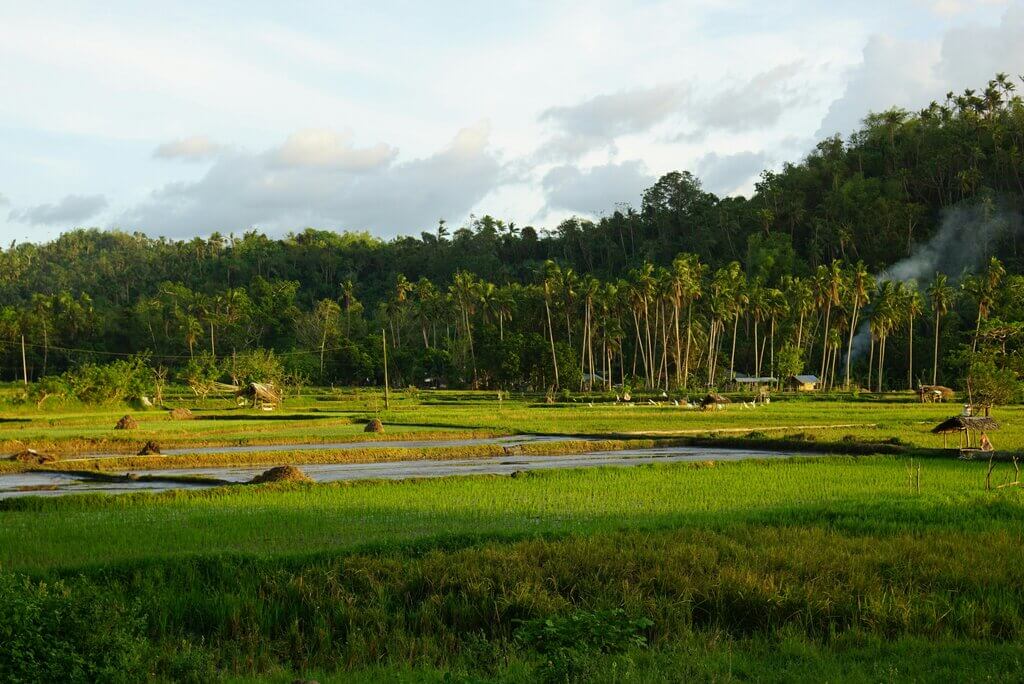Land ownership restrictions for foreigners
There are severe restrictions on foreign land ownership in the Philippines. Land ownership is typically forbidden to foreigners under the Philippine Constitution and Public Land Act. This restriction stems from a national policy meant to protect the country’s heritage and guarantee that land stays in the hands of Filipino nationals.
However, as long as Filipino citizens hold at least 60% of the outstanding capital stock, commercial entities such as corporations can buy land in the Philippines. Even in cases where there is some foreign investment, this rule guarantees majority control by the Filipino people. Therefore, cooperative structures and corporate partnerships with Filipino citizens provide a legal avenue for foreign involvement in land use and development, even while foreign direct land ownership is forbidden.
Options to buy land in the Philippines as a foreigner
Buying land in the Philippines as a foreigner can be challenging due to regulatory restrictions. However, there are legal ways to navigate these challenges. Those wondering how to buy land in the Philippines as a foreigner have four options.
Option 1: Lease agreements
In the Philippines, land ownership by foreigners is typically forbidden. Leasing agreements provide a helpful substitute. A foreign national may sign a lease with a Filipino landowner for a maximum of the 50-year initial term under the Investor’s Lease Act of the Philippines. Foreigners can use a land lease agreement to lease land for business or personal use.
Option 2: Corporate ownership
Corporate ownership is another popular strategy to buy land in the Philippines. The Securities and Exchange Commission (SEC) requires the establishment of a domestic corporation before you may lawfully trade in the land market. At least 60% of the company’s shares must, however, be owned by Filipinos. Only 40% of the company will be under foreign ownership and control. Following SEC approval, the corporation can buy agricultural land in the Philippines and other real estate. After that, foreigners can use their ownership share in the corporation to enjoy the land.
Option 3: Marrying a Filipino citizen
Foreigners can purchase land if they are married to a Filipino citizen, but their spouse will own the title. You are not permitted to be listed on the Transfer Certificate of Title (TCT) but may be on the contract or Deed of Sale. Foreigners will inherit the land if their spouse passes away. Still, as foreign nationals are not permitted to hold land, they must sell it quickly, give ownership to their children, or give it to Filipino relatives if the couple is childless.
Option 4: Heritage
The Philippine Constitution provides a limited exemption that permits foreigners to inherit land through hereditary succession. If you are an heir by hereditary succession, legally or naturally, you can inherit land in the Philippines. This may happen if the land owner dies without a will and you are named in their “Last Will and Testament” or through intestate succession.
What documents are required when buying a lot in the Philippines?
Understanding the documentation to buy land in the Philippines ensures a smooth and secure transaction. These documents validate the legality of the sale and protect both the buyer’s and the seller’s interests. Here are five documents needed when buying a lot in the Philippines:
- Deed of absolute sale: This notarized legal instrument confirms your acquisition and holds evidence of the land’s transfer to your name, which should be officially recorded at the Registry of Deeds.
- Deed of adjudication with sale: This document records the agreement among heirs to dispose of a piece of inherited land, safeguarding against potential ownership challenges.
- Certificates of title: Proof of land ownership received from the Registry of Deeds, with a Transfer Certificate of Title for lots or houses and a Condominium Certificate of Title for condominium units.
- Tax declaration: This attests to the seller’s adherence to land tax payments when planning to purchase land in the Philippines. Before acquisition, the new landowner must obtain an updated declaration under their name from the municipal assessor’s office.
- Contract to sell: This preliminary binding promise enables a buyer to prevent the land from being marketed until the payment is completely fulfilled. It lays out the terms and conditions the parties agreed upon for the transaction to purchase land in the Philippines.

7 steps in buying a lot in the Philippines
Buying land in the Philippines can be a rewarding investment, but it can also be challenging, especially for foreigners. However, foreigners can buy land in the Philippines by following our 7-step guide below.
Step 1: Verify ownership
The initial step is to confirm who owns the land. Obtain a copy of the title from the Register of Deeds to verify the ownership details for purchasing land in the Philippines. The title will reveal the owner’s name and other critical information. Always obtain a copy of the title from the seller to show the Register of Deeds.
Step 2: Double-check potential issues
Given the significant financial investment, it’s crucial to perform real estate due diligence and double-check for any potential issues:
- Verify the land description matches official records.
- Obtain a copy from the seller.
- Ensure there are no disputes regarding access.
- Confirm the seller’s authenticity.
Step 3: Obtain a notarized and signed deed of sale
A notarized and properly signed deed of sale is vital to purchase land in the Philippines. This document details which party is responsible for paying property sale taxes.
Step 4: Resolve BIR fees
Before visiting the BIR (Bureau of Internal Revenue) branch, check their website for requirements. Within 30 days of signing the Deed of Sale, the designated party must pay any outstanding fees and submit necessary paperwork, including:
- Original and photocopy of the Deed of Absolute Sale.
- Original and photocopy of the Transfer Certificate of Title.
- Tax Declaration for Land and Improvement.
- Buyer and seller’s tax ID number.
Step 5: Process transfer taxes
The BIR representative will calculate your Capital Gains Tax and Documentary Stamp Tax. You must also sign BIR Form 1706 and BIR Form 2000 to buy land in the Philippines. Submit these documents to the municipal or city treasurer’s office or an authorized bank for processing.
Step 6: File CGT and DST documents
Submit your Capital Gains Tax (CGT) and Documentary Stamp Tax (DST) documents to the BIR to receive a certificate of authorization to register.
Step 7: Get a copy of the new tax declaration
Finally, the municipal or provincial assessor’s office must obtain a copy of the new tax declaration to buy land in the Philippines. Typically, the new documentation becomes available five days after submission.
Expert assistance for buying land in the Philippines
Navigating the process of buying land in the Philippines as a foreigner can be challenging, but our experienced team is here to help. We offer comprehensive support, from understanding legal requirements and finding the perfect plot to ensuring a smooth transaction. Whether you need guidance on the documentation process or help with property selection, we provide personalized assistance tailored to your needs. You can also email us directly at [email protected] for more detailed inquiries and support. Reach out to us today and take the first step towards owning land in the Philippines with confidence!

Frequently Asked Questions (FAQs)
Can a former Filipino buy land in the Philippines?
Yes, a former Filipino can buy land in the Philippines, but it is subject to specific limitations regarding the type and size of the land they can purchase.
How much does it cost to buy land in the Philippines?
The cost to buy land in the Philippines is around ₱ 10,000 ($175) per square meter for urban land and ₱ 2,500 ($43.73) to ₱ 3,500 ($61.22) per square meter for suburban land. Buying agricultural land in the Philippines costs usually below ₱ 1,000 ($17.49) per square meter.
What taxes do I pay when buying land in the Philippines?
The taxes to pay when buying land in the Philippines are the transfer tax, Documentary Stamp Tax, and real property taxes.
What are the requirements for buying land in the Philippines?
The requirements to buy land in the Philippines are the Deed of Absolute Sale, Deed of Adjudication with Sale, Certificates of Title, Tax Declaration, and Contract to Sell for legitimacy and accuracy.
Where to buy land in the Philippines?
There are many great places in the Philippines to buy land, including Metro Manila, Cebu, Siargao, Boracay, Palawan, and Davao. You can find lots for sale in the Philippines on online real estate listing platforms.
Is it safe to buy land rights in the Philippines?
Buying land rights in the Philippines is unsafe because there is a risk of legal disputes if you unknowingly buy property from someone who doesn’t have the right to sell it.
Who can buy land in the Philippines?
Filipino citizens can buy land in the Philippines, and corporations or partnerships with at least 60% Filipino ownership can buy land. At the same time, foreigners can purchase condominiums and buildings or enter long-term land leases.
What are the steps to buying land from an owner in the Philippines?
The steps to buying land from an owner in the Philippines include verifying the land title, securing financing (through PAG-IBIG, a bank loan, or government-assisted funds), executing a sale agreement, paying required taxes and fees, and registering the sale with the Registry of Deeds to transfer ownership.
How do I buy a lot in the Philippines?
To buy a lot in the Philippines, you must verify ownership, check for potential issues, obtain a notarized deed of sale, settle BIR fees, process transfer taxes, file CGT and DST documents, and acquire a copy of the new tax declaration.






